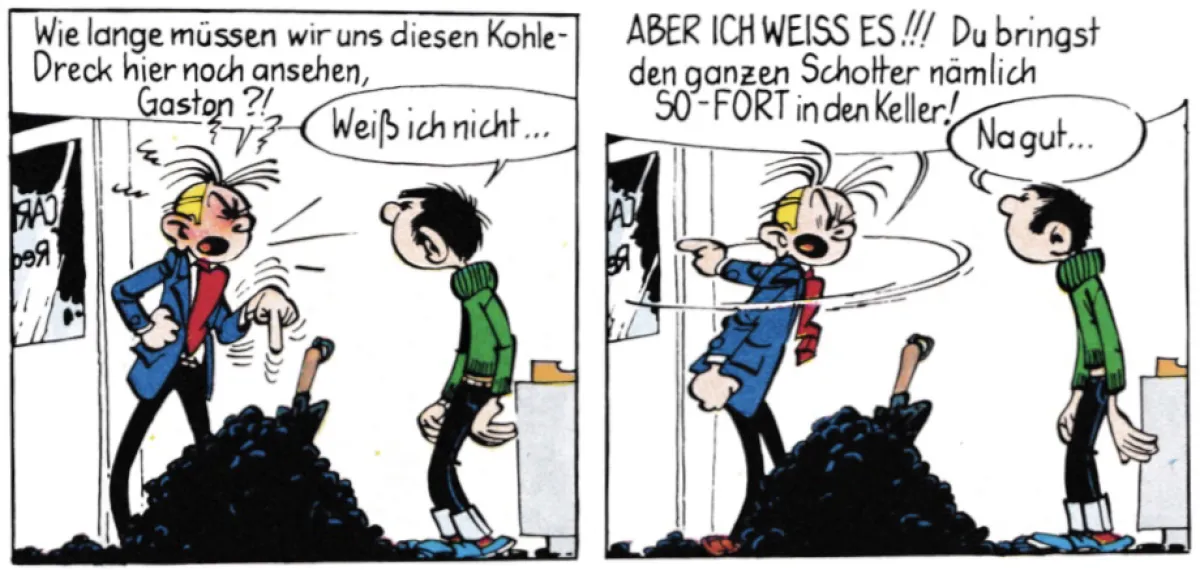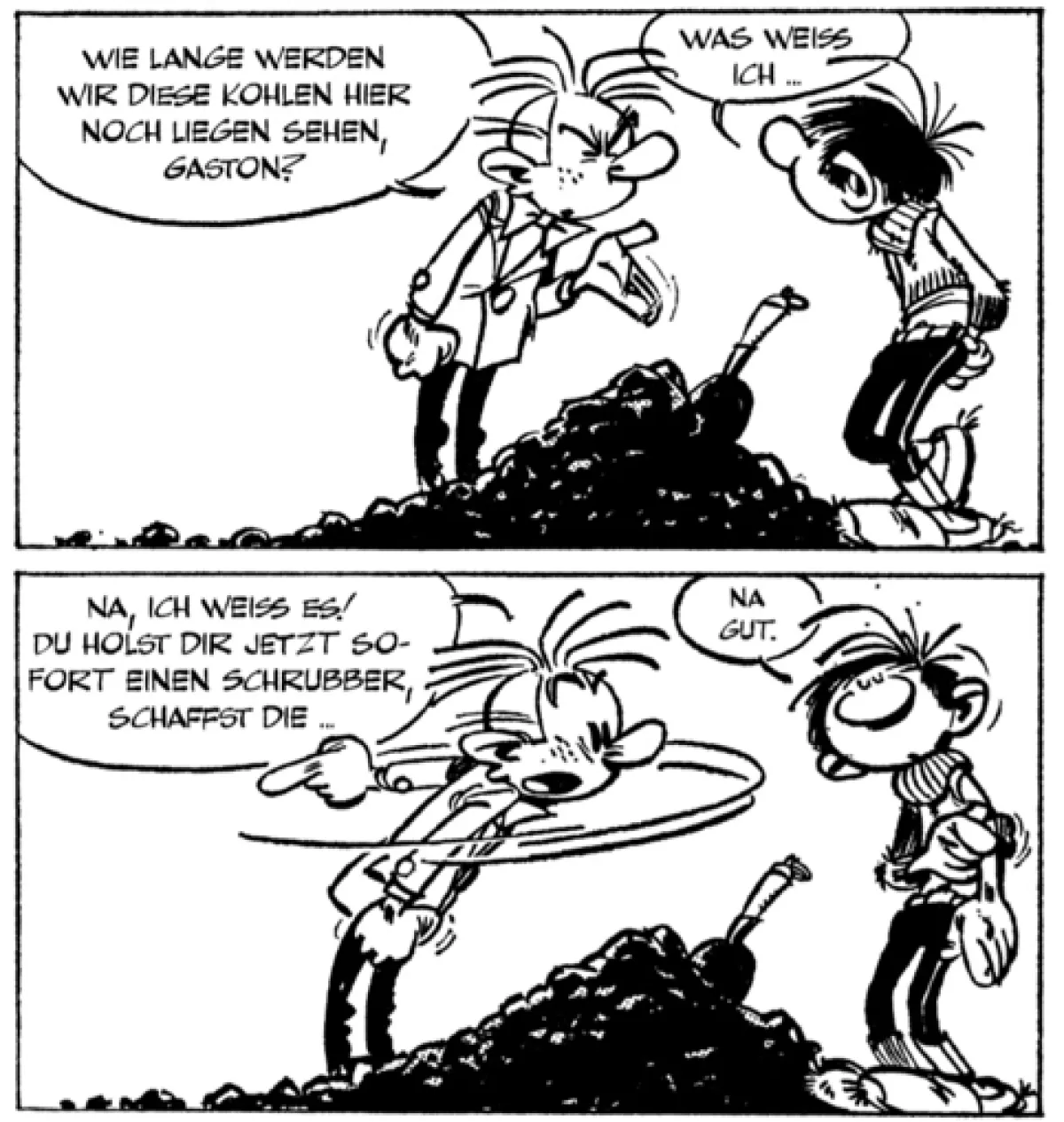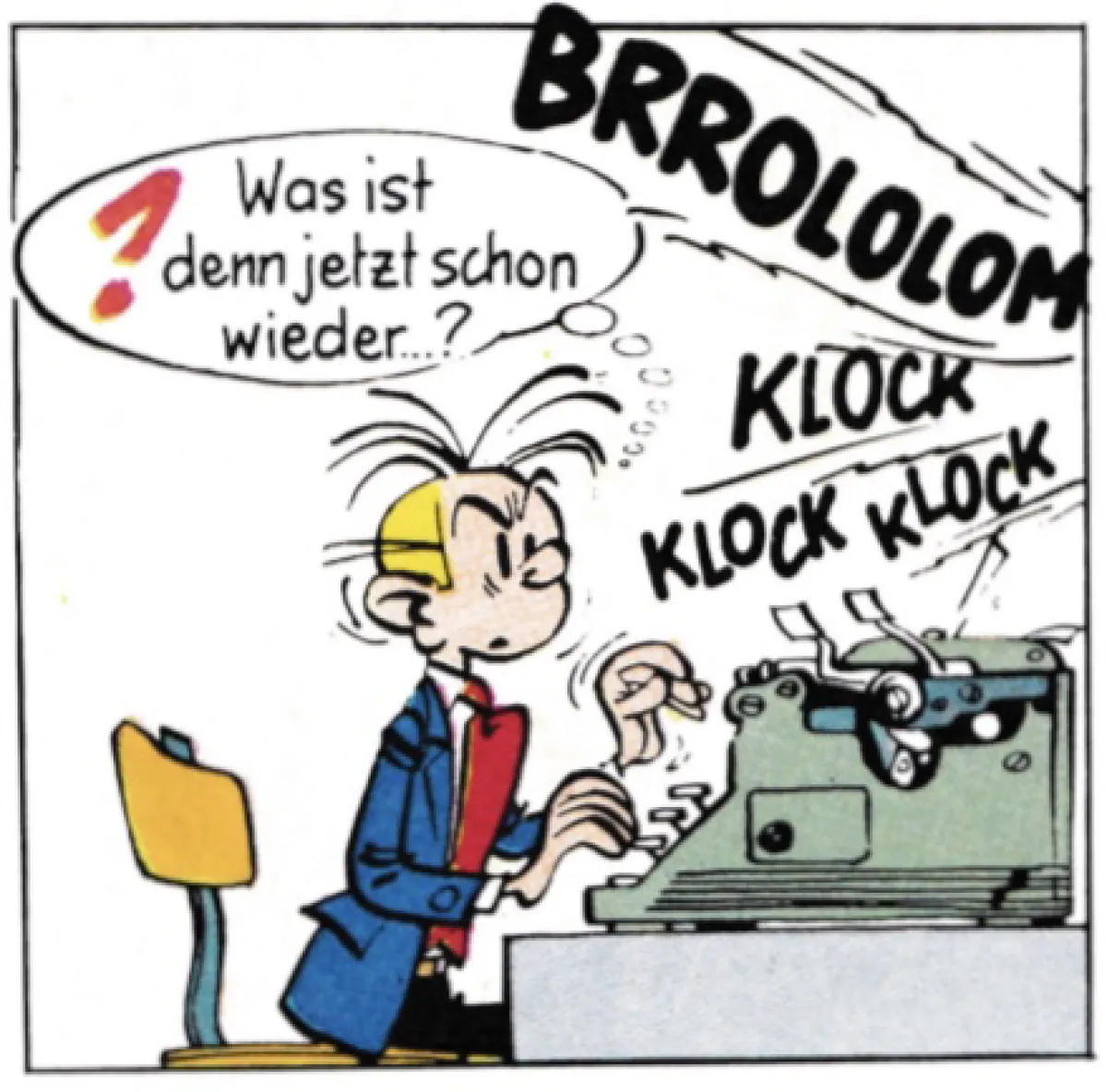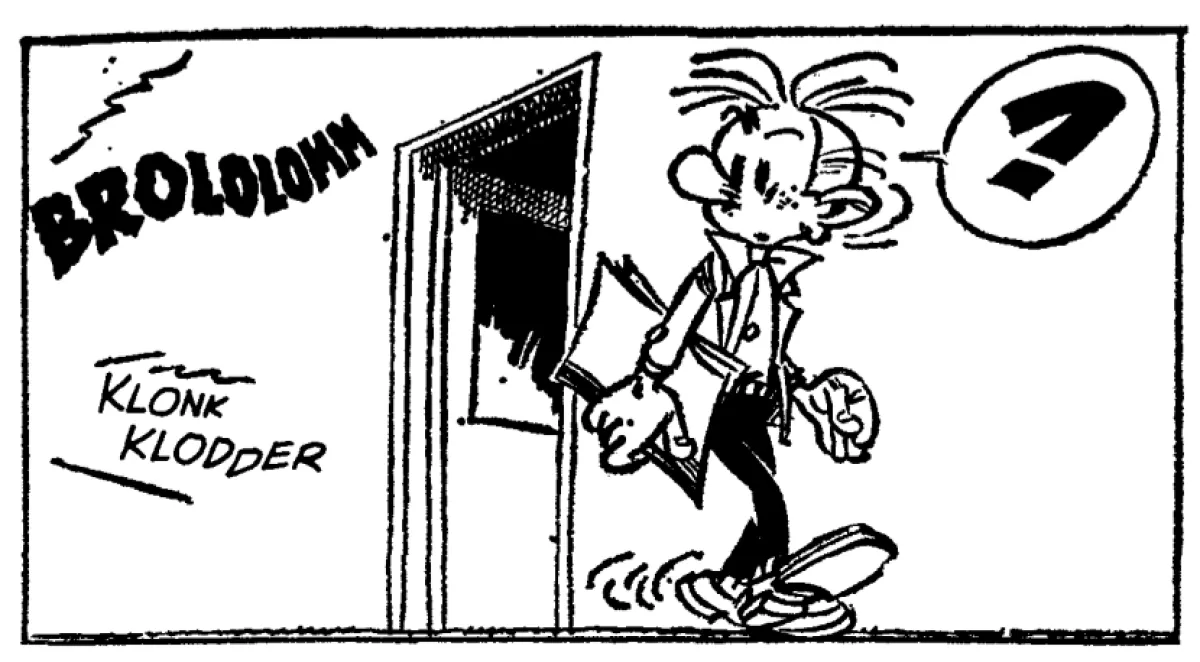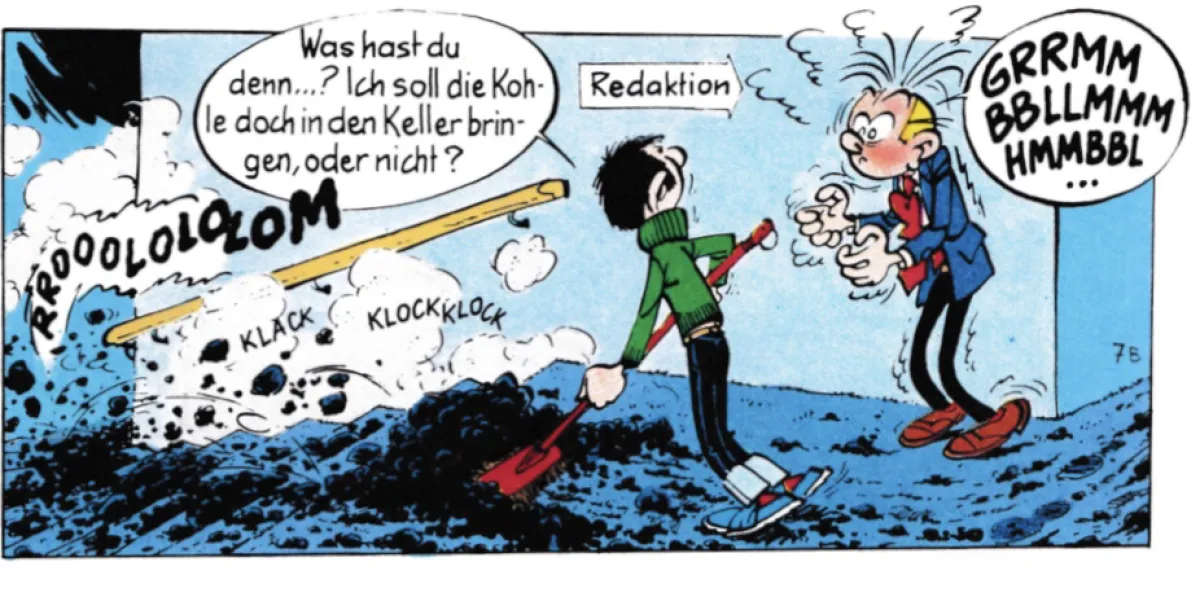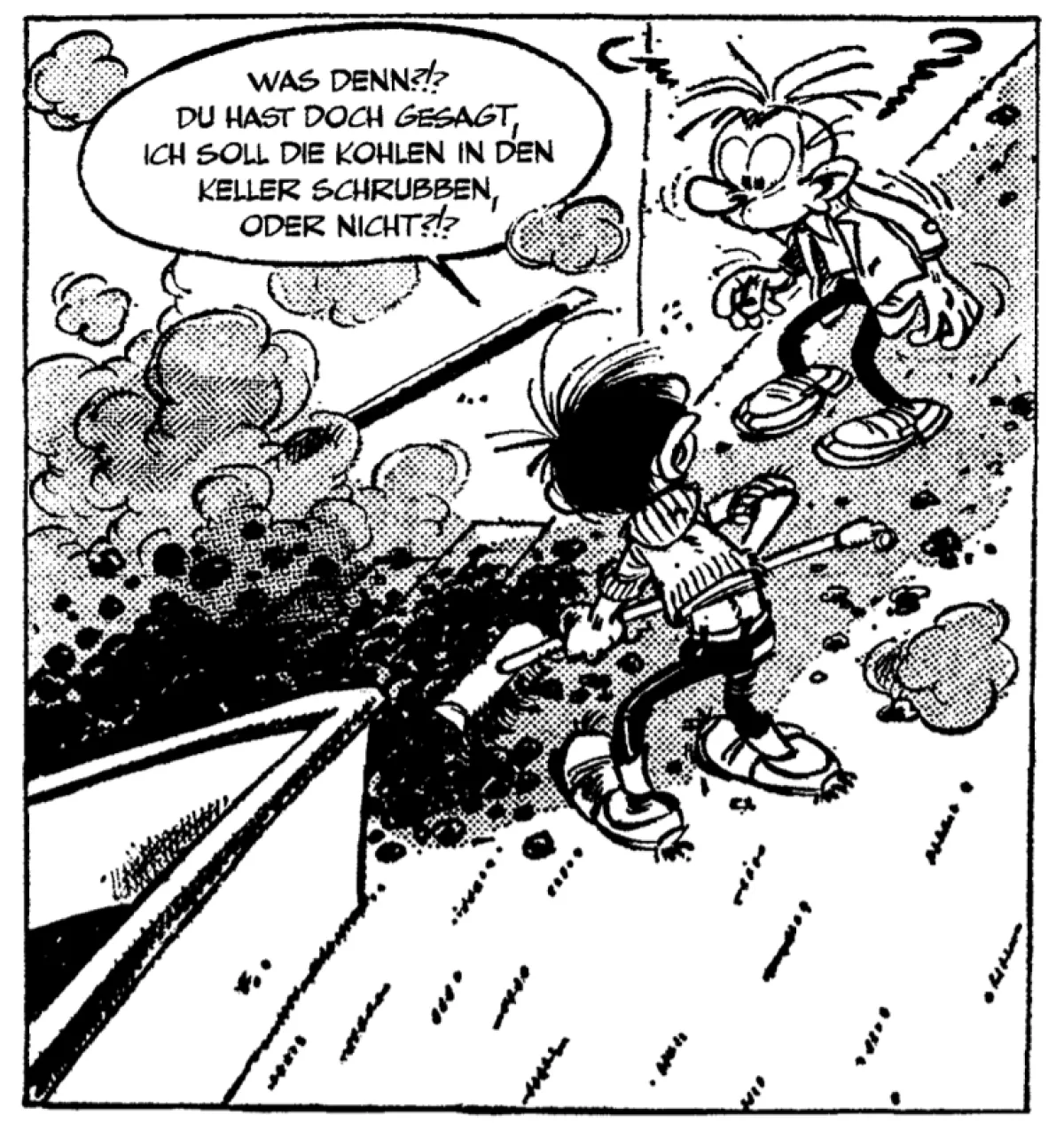Laugh your troubles away !

One pig says to another (who is lovingly tending her piglets) : "Oh, these perfect mothers ... I couldn't give a damn about life! Do I care ? Not a sausage ! We're all mincemeat in the end ..."
Of course, it's impossible to say for certain whether André Franquin would have found this funny, but in a sense, it does reflect his view of life. Nearing 40, he was struck for the first time by depression, bouts of which would plague him for the rest of his life, plunging him into the darkest of places. He countered these black holes with a sense of humour as dark as the depression itself. Thus came about 'Dark Thoughts' which - drawn from 1977 onwards - contributed to the coming of age of the comic genre.
To mark the centenary of André Franquin, the publishers Carlsen Verlag are releasing over the first few months of the year, four newly revised volumes from this influential artist. He brought such depth to the 'Funnies' in particular, making him a beacon in the landscape of European comic art. Staying with this image, his brilliance shone right across to the US scene. But why bring owls to Athens? Has Franquin not published extensively enough? What added value is there in these new publications ?
André Franquin | Gaston im Schuber (High-quality anniversary edition 100 years of Franquin)
Carlsen | 320 pages | 89 euros
Like many artists, Franquin struggled with enormous insecurity about his own work. It was not for nothing that he created an alter ego in the form of the chaotic office assistant Gaston Lagaffe on February 28, 1957 in the magazine 'Spirou'. Through him, he could gently poke fun at his own shortcomings . Unlike Franquin, however, Gaston is never troubled by any self-doubt. He is a comedic Parsifal, stumbling like a clumsy fool from one disaster to the next. The story of the various editions of his adventures in Germany is almost as chaotic as the hero himself. It took 25 years from the first rather unsuccessful version from Kauka in 'Fix und Foxi', through the somewhat confused sequence of the initial edition from Carlsen and its spin-off Semic, to the first reasonable edition from Carlsen Verlag. However, this background and Franquin's lack of self-belief now gives us the chance to gain new insights : 'Tales from a chaotic life'.
This is the first German publication of well-known strips from the early albums. These had been completely redrawn by André Franquin for the compact paperback edition published in France and Belgium in 1965. This was almost certainly due to his dissatisfaction with the earlier depiction of Gaston, created in collaboration with Jidéhem (Jean De Mesmaeker). The drawings were not always dynamic enough for him. He also felt that the constellation of characters in the Carlsen universe was not really sketched with a precise enough outline. So, Franquin not only brought the office assistant stylistically up to date, recalling the Gaston of the golden age, he also proved himself to be a perfectionist in the design detail.
A juxtaposition of the panels shows a fundamental focus on the characters and their psychology, for example by discarding superfluous decorative elements. Furthermore, the inertia of Gaston's original depiction is resolved, replaced by attitudes of regretful acceptance and willing commitment - he comes across as more childlike and naive. Fantasio, the office manager, is also slightly altered. He is less irascible, more like the character he becomes later in the Gaston series. The tension in his body is marked by confusion and weariness through overwork. It may well be due to the paperback format of the 1965 edition, but the rearranging of the timeline from a horizontal to a vertical sequence ups the pace of the presentation.
Comparing other images (see above), this tendency towards paring down can be seen again - a concentration on a more dynamic interpretation of the figure. Here, Fantasio's irritation is shown not so much by the text as by an apparently simple turn of the body - he literally veers off course and goes towards his fate. One can sense catastrophe looming.
It's remarkable to see, in the following example too, how these details can change the characters' emotions and their social standing.
Gaston's new stance is far less passive and fixed. He now looks up at Fantasio from below, childishly anxious for approval. Fantasio, on the other hand, is clearly positioned above him but despite, or precisely because of this, appears more powerless than aggressive.
This adds the suggestion of a social statement to the slapstick, something particularly familiar in Charlie Chaplin's 'Tramp' character. This volume is therefore a must for every collector and lover of Franquin.
The Spirou comic, in which Gaston causes chaos whilst actually only playing a minor character, is also getting a deluxe Special Edition from Carlsen. For Fantasio's birthday, Gaston gives him a troupe of performing monkeys, assets from a circus that has gone bankrupt. The show put on by 'The Bravo Brothers' is André Franquin at the height of his genius.
To finish, I should mention that this is a new colour version, expanded to include previously unpublished drawings, original facsimiles and extensive background material. Most importantly, this landmark of the comic genre has been given a worthy deluxe edition. Let the centenary year continue!




